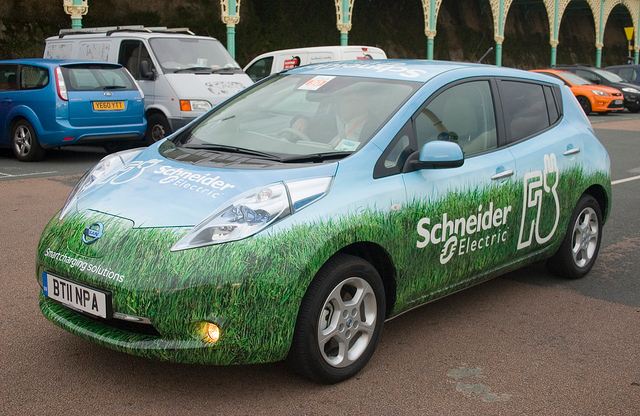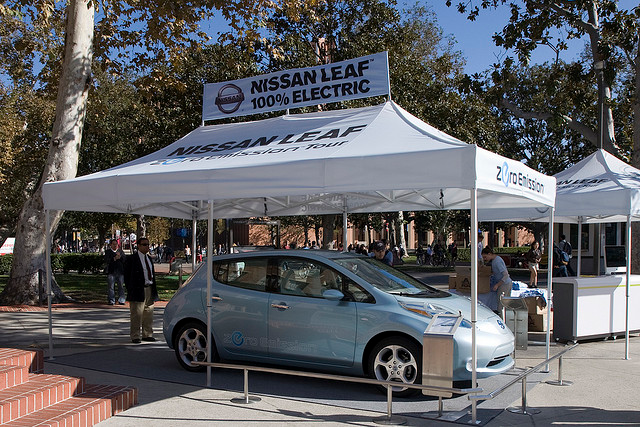Petrol and diesel prices just seem to rise higher and higher each year, don’t they? For example, unleaded petrol costs on average around 137.7p/litre at the time of writing, a rise of nearly 20% from this time 5 years ago!
These high prices are mainly due to the taxes levied on fuel companies by our government, and the cost to refine and produce the fuel ready for selling at filling station across the UK.

Another factor that contributes to these high prices is the increasing demand for these fossil fuels across the world. More demand usually means higher prices when it comes to crude oil, so in these austere times many individuals and companies across Britain are looking for ways to cut back on their motoring costs.
One such way – and an innovative one at that – is to invest in electric cars, or plug-in hybrid cars (i.e. part electric, part petrol/diesel). So should we all be excited about this new promising and potentially commonplace way of getting from A to B? I think we should, and here’s why:
Electric cars have no emissions
As you may know, cars built after the 1st of March 2001 are taxed according to their emissions rather than by the size of their engines, which is what pre-March 2001 cars are taxed by. This emissions-based car tax is calculated according to 13 different bands of emissions values.
Generally speaking, cars with larger engines tend to be taxed at a higher rate; for example, cars in band A attract no tax (this applies to electric cars and some hybrids), whereas cars in band M attract a tax of £490 for a 12-month tax disc!
And in case you didn’t work it out, electric cars are powered by battery packs and so have no greenhouse emissions, unlike standard petrol and diesel engines.
Eco-friendly
Because electric cars do not emit any CO2 (carbon dioxide), they are more eco-friendly than even the greenest of petrol and diesel-powered cars.
Now one might argue that the production of electricity in itself contributes to greenhouse gases, but if you don’t have the money to house some kind of wind power station built in your back garden, you can do the next best thing and choose a ‘green’ tariff from your energy supplier.
What this will essentially mean is that, for every unit of electricity you use, the energy company will feed a unit of electricity back into the grid from sustainable and more eco-friendly sources rather than non-sustainable ones.
Also, using electricity in the evening when demand is low is actually more eco-friendly anyway, as renewable energy sources mainly power the grid.
Affordable
There was a time where electric cars were considered ridiculously expensive, but with advances in battery and electric motor technology, it is now possible to buy electric cars for nearly the same price as their fossil fuel powered equivalents.
Plus there are government grants in place to help fund new electric car purchases. And for charging your vehicle at home, British Gas have a scheme in place to install an electric charging point at your home for free (regardless of whom you bought your electric car from), as it is government-subsidised.

If you have made your mind up and have decided that an electric car is for you, and you want tomorrow’s technology now, click here to learn more about some awesome leasing deals on the Nissan Leaf, and other eco-friendly cars!










Comments